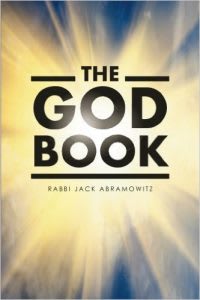7. Secret Names of God
The articles in this series are based upon ideas expressed in the Rambam’s Moreh Nevuchim (The Guide for the Perplexed). Numbers in brackets represent the book and chapter of Moreh Nevuchim where these ideas are discussed.
As mentioned in the previous installment, the proper pronunciation of the shem hameforash is not commonly known. [I, 62] (The shem hameforash is also known as the Tetragrammaton and the ineffable name. In these articles, we choose to render it YHVH.) In Hebrew, all letters are consonents; vowels are understood. Diacritical marks were later devised to indicate vowel sounds but they are not inherent to the language and they do not appear in the Torah. To know the correct pronunciation of YHVH, one would need to know the vowel sounds assigned to each letter. This was a closely-guarded secret. Every seven years, a scholar would teach the name to a worthy disciple. This included not only the name's proper pronunciation but its meaning and its secrets.
The Sages also knew a 12-letter name for God. The Rambam believes that this was a phrase of two or three words that collectively had a total of 12 letters. This name was used as a substitute for YHVH in much the same way that we use "Adonai." We've already discussed how names of God other than YHVH are not exclusive to God. The 12-letter name was a more specific than "Adonai" (which was also used to address angels in Genesis 18:3) and, unlike YHVH, it was not initially withheld from students who wanted to learn it.
The 12-letter name of God was eventually concealed because it became too widely known. Unscupulous people learned it and corrupted its meaning. This was a consequence of unqualified people, with imperfect knowledge of the matter, learning that things weren't how they thought. Their reaction was to change the explanation to match their preconceptions rather than to adjust their mindsets.
We have a tradition that when Shimon HaTzaddik died, the use of YHVH in the Temple was discontinued and the shem hameforash was replaced with the 12-letter name. The name was kept secret by the voices of the kohanim who actually pronounced it being drowned out by the voices of those who did not do so.
There was also a 42-letter name of God, which the Rambam tells us was certainly a phrase of several words totaling 42 letters. Collectively, these words expressed an idea of God's essence. The Talmud tells us that the 42-letter name of God was only entrusted to a middle-aged person who was modest, slow to anger and gentle, who did not drink or bear a grudge. A person who merited to be faithfully entrusted with this name could expect such rewards as being respected by his fellow man and enjoying the fruits of both this world and the next. (The Rambam is quick to point out that the reward is not for being entrusted with the name per se, but for undergoing the growth and personal development necessary to grasp the name's meaning.)
It must be noted that neither the 12-letter name nor the 42-letter name is designated "shem hameforash" - the explicit name of God. That designation is reserved for YHVH alone. Nevertheless, the 12-letter name and the 42-letter name each contained certain metaphysical ideas about God.
Sources: Kiddushin 71a, Yoma 39b, Menachos 109b

